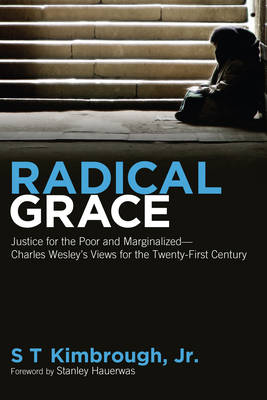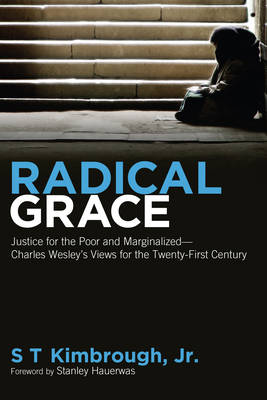
Bedankt voor het vertrouwen het afgelopen jaar! Om jou te bedanken bieden we GRATIS verzending (in België) aan op alles gedurende de hele maand januari.
- Afhalen na 1 uur in een winkel met voorraad
- In januari gratis thuislevering in België
- Ruim aanbod met 7 miljoen producten
Bedankt voor het vertrouwen het afgelopen jaar! Om jou te bedanken bieden we GRATIS verzending (in België) aan op alles gedurende de hele maand januari.
- Afhalen na 1 uur in een winkel met voorraad
- In januari gratis thuislevering in België
- Ruim aanbod met 7 miljoen producten
Zoeken
Radical Grace
Justice for the Poor and Marginalized--Charles Wesley's Views for the Twenty-First Century
S T Kimbrough
Hardcover | Engels
€ 58,45
+ 116 punten
Uitvoering
Omschrijving
This volume brings together for the first time the writings of Charles Wesley on the theme of justice for the poor and marginalized, drawing upon his sermons, manuscript journal, poetry, and a few letters. Most of his poems/hymns that address poverty and justice were left unpublished at his death. The author studies the theology of these texts for the first time in relation to relevant themes in his sermons, manuscript journal, and letters, and evaluates it in the light of its application and implementation in the eighteenth century and its viability for the twenty-first-century church and Christian. Charles's views of how Christians may "use divine grace divine" in seeking justice for the poor are indeed radical, for they advocate behavior that is often quite contrary to what is generally accepted as Christian practice. This volume makes clear that the radical grace he espouses is consistent with Holy Scripture and should indeed be practiced by Christians today. The liturgies and musical settings of some of the hymn texts that address the poor and marginalized at the end of the volume provide a pragmatic means for the worshipping community to integrate the principles of radical grace into their theology and praxis.
Specificaties
Betrokkenen
- Auteur(s):
- Uitgeverij:
Inhoud
- Aantal bladzijden:
- 170
- Taal:
- Engels
Eigenschappen
- Productcode (EAN):
- 9781498215220
- Verschijningsdatum:
- 12/02/2013
- Uitvoering:
- Hardcover
- Formaat:
- Genaaid
- Afmetingen:
- 152 mm x 229 mm
- Gewicht:
- 408 g

Alleen bij Standaard Boekhandel
+ 116 punten op je klantenkaart van Standaard Boekhandel
Beoordelingen
We publiceren alleen reviews die voldoen aan de voorwaarden voor reviews. Bekijk onze voorwaarden voor reviews.









